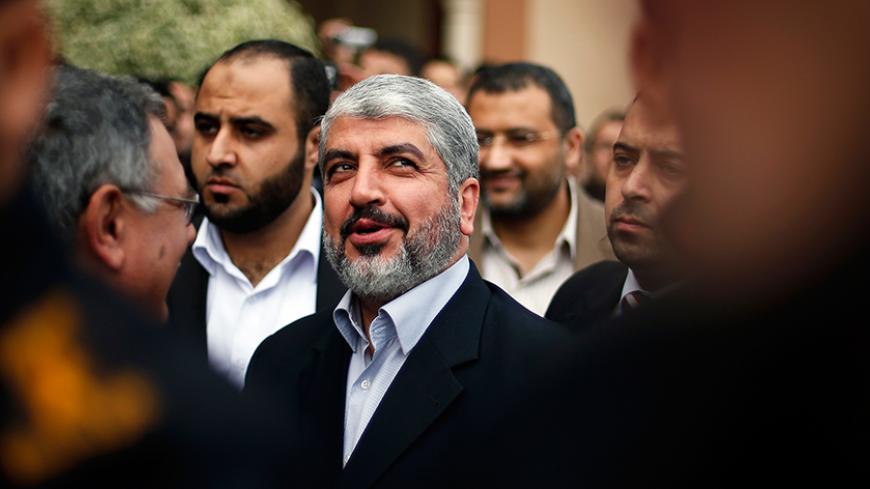These are the final days of Khaled Meshaal’s leadership of the Hamas political bureau. Meshaal’s influence in the movement has been declining ever since he bet on the wrong horse and moved from Damascus to Qatar, where he did not find the support he had hoped for. Now his downfall is apparently about to be official and final.
The Meshaal era in the Hamas movement is coming to an end with a whimper. The London-based Al Wattan newspaper reported June 13 that the movement’s leader informed his associates in Qatar, where he has been living since leaving Syria and falling out with Iran, that he had decided not to run in the year-end elections for leadership of the political bureau and Hamas' decision-making body, the Shura Council.



